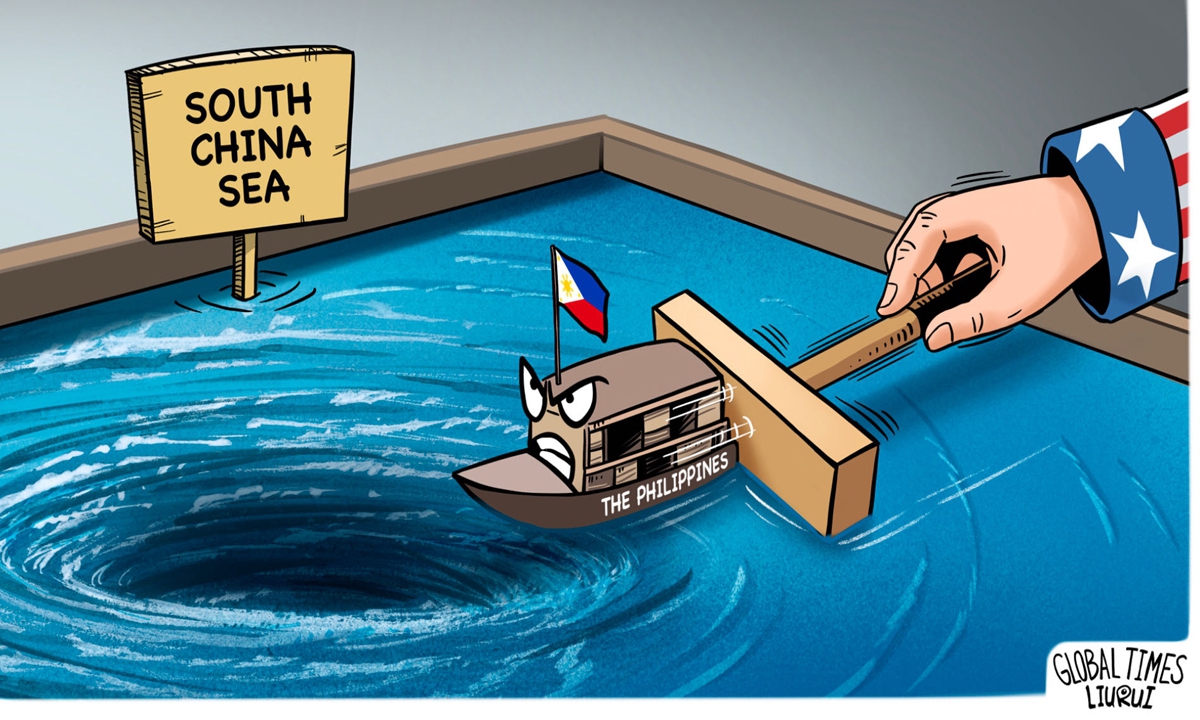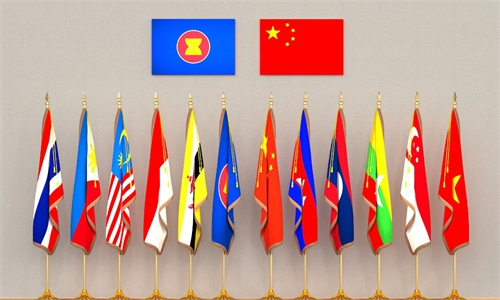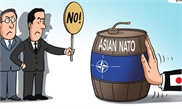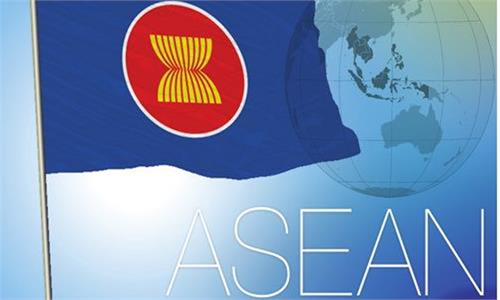
Illustration: Liu Rui/GT
On Thursday at ASEAN Summit, Philippine President Ferdinand Marcos Jr spread a distorted narrative regarding the South China Sea issue. He emphasized that the overall situation in the South China Sea "remains tense," stating that his country is "subjected to harassment and intimidation." He urged all ASEAN member states "not to turn a blind eye to the aggressive, coercive and illegal actions of an external power against an ASEAN member state," arguing that "silence in the face of these violations diminishes ASEAN."In recent years, the South China Sea has not been calm. However, consistently emphasizing a "tense" atmosphere at a platform aimed at discussing major regional issues does not reflect the facts. In reality, there have been no restrictions on the freedom of navigation for civilian vessels, nor have there been any armed conflicts.
The incidents in the South China Sea are primarily caused by the Philippines' repeated provocations in the waters with the support of the US. If one were to scrutinize the facts, it would be evident that the Philippines' role is not as "innocent" as it claims.
Since 2022, the new Philippine government under Marcos adopted a pro-US policy, willingly becoming a pawn in the US strategy to contain China by repeatedly sending vessels to provoke actions in China's surrounding waters. The current Philippine government's pro-US diplomacy is what truly diminishes ASEAN. It is well-known that ASEAN generally pursues a great-power balancing policy, avoiding taking sides in the great-power competition. This balancing policy has received recognition from major powers and is crucial for ASEAN to maintain its central role in regional affairs.
However, since 2022, the Philippines has strengthened its alliance with the US and its allies. Essentially, this strengthening of alliances or forming quasi-alliances is a clear move toward a pro-US stance and a departure from ASEAN's balancing policy.
Regarding negotiations on the Code of Conduct (COC) in the South China Sea, the Philippines attempted to portray itself as a victim by stressing that "there should be more urgency in the pace of the negotiations of the ASEAN-China Code of Conduct." In reality, without the Philippines' provocations over the past year, the atmosphere for negotiations would likely have been more relaxed and cordial.
If not for the Philippines' attempt to stubbornly make an issue of the so-called South China Sea arbitration award, China and ASEAN would have had a greater chance of reaching a consensus on more terms. If Manila had not sought to establish a separate code of conduct with some relevant countries in the South China Sea, political trust between China and ASEAN could have been further enhanced. Therefore, the Philippines is indeed the biggest disruptor of the negotiation process for the COC.
The annual ASEAN Summit is a major event for regional cooperation. ASEAN's ability to bring together powers like China, the US, Japan, Russia, India and Australia is rooted in a spirit of cooperation aimed at bridging differences and forming consensus. The announcement of the substantial conclusion of the Version 3.0 China-ASEAN Free Trade Area (FTA) upgrade negotiations, along with a joint statement between the two sides, vividly demonstrates this cooperative spirit.
Clearly, the Philippine side's provocative remarks at the ASEAN Summit were not aimed at fostering cooperation or building consensus. Instead, its goal was to incite divisions and create splits. The immediate reason for this might stem from the Philippines' recent failure when its coast guard ship deliberately ran "aground" at Xianbin Jiao, promoting it to tarnish China's image and distort facts in an attempt to gain political and diplomatic leverage while preparing a narrative for future provocations.
In the long run, this is just the Philippines' geopolitical performance of collusion with the US to hype up the "tensions" in the South China Sea and to create policy divisions within ASEAN. This aligns with the US' need to strengthen its military presence in the South China Sea and maintain its dominance in Asia, which fundamentally contradicts the interests of ASEAN countries.
The author is vice president of Shanghai Institutes for International Studies. opinion@globaltimes.com.cn



